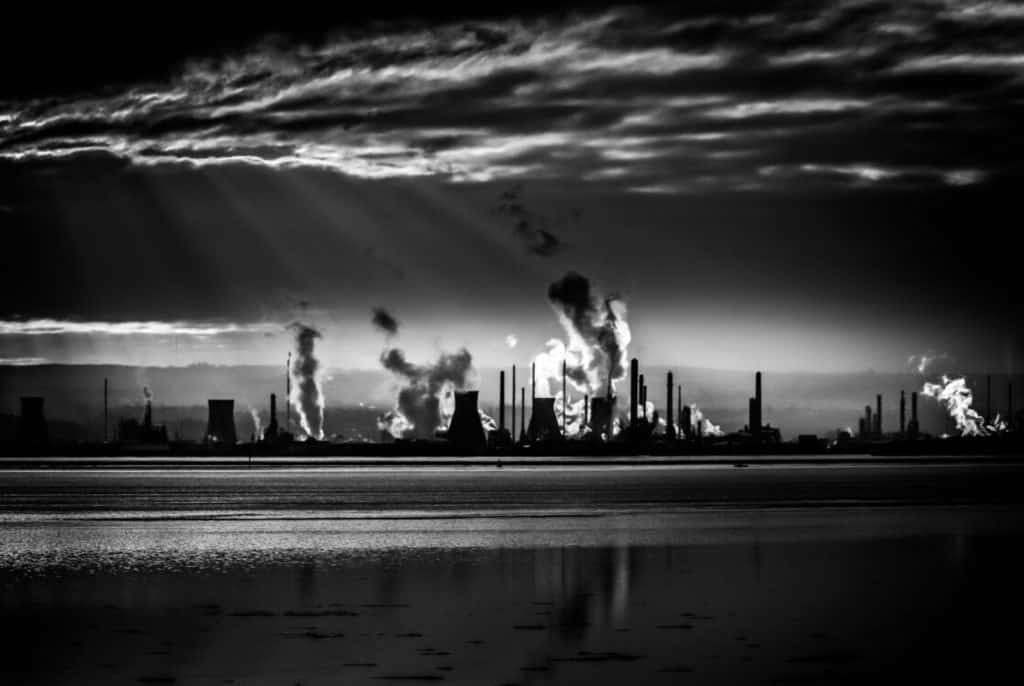What To Know
- And in 2020, much of the demand for oil and gas had fallen drastically due to global lockdowns and “work from home (WFH)”, further exacerbating business disruption for the oil and gas industry in revenue.
- In a bid to counter the rising cyber incidents, countries have been taking preventive measures such as establishing privacy laws, such as the GDPR in Europe, the PIPA in South Korea, and PDPA in Singapore.
Editor’s brief: Even as the pandemic rages on worldwide with the onset of vaccinations, the reality is that the world needs to go on, albeit with more caution. The oil and gas industry continues to power much of the world, including the likes of EVs. What are some of the critical factors that can cause hazards in the oil and gas industry? What are some possible way to mitigate such risks and hazards? Leading German industrial safety stalwart HIMA speaks on the topic. Read more below from the vendor’s op-ed.
Protecting against the major hazards in the Oil and Gas industry
by Friedhelm Best, Vice President Asia Pacific, HIMA
Every business across the globe confronts risks, some of which may be colossal or deadly. Natural disasters and the raging pandemic account for a large number of losses, and cyberattacks continue to threaten the safety of companies as well.
Allianz Global Corporate & Speciality (AGCS) has released its “Allianz Risk Barometer Report” for 2021, the 10th year running. The data is taken from more than 2,700 risk management experts from over 92 countries across 22 industrial sectors. The annual survey examines the top 10 risks for companies across the globe, based on individual countries, regions, and specific industries, such as agriculture, manufacturing, mining, shipping, and oil and gas.
What’s the situation in the oil and gas industry? Today, we explore some of the major risks to the oil and gas industry and explore what plant operators can do to protect against them.
1. Business Interruption
According to the report, the top risk is still business disruption (it was also the top risk in the past few years in this report). With the fallout from the pandemic, industries and companies large and small have been gravely disrupted in business operations and their supply chain integrity.
Regardless if the cause of risk traces back to a fire incident or a cyber attack, the repercussions for a company are often underestimated. On average, monetary losses as a consequence of business disruptions can amount to more than US$2 million. In many cases, it is difficult to even accurately calculate the financial impact or identify the cause of such a disruption. And in 2020, much of the demand for oil and gas had fallen drastically due to global lockdowns and “work from home (WFH)”, further exacerbating business disruption for the oil and gas industry in revenue.
2. Pandemic outbreak
2020 became a radical year of change, for good and bad. Many lives and livelihoods were lost in the year, just as businesses folded or shrank. However, just as many businesses pivoted to new ways of doing business, with the creation of new jobs and new learning. According to the report, the pandemic as a risk factor rose to number 2, contrasting with previous years (it was ranking 16th in 2019).
Entire industries, such as aviation, hospitality, leisure, and even food and beverage, essentially collapsed to near zero or zero. For oil and gas industries, the fallout from the pandemic was demand, which aviation and shipping industries, forming the bulk of demand, shrank drastically. With governmental support and rescue measures being slowly phased out in 2021, insolvencies of businesses will rise significantly. Because of telecommuting and working from home, even oil and gas industries saw the need to digitalize, empowering workers to work remotely, and adopt digital management and control technologies.
3. Cyber Incidents
The frequency of cyber incidents have been soaring, especially because of the pandemic, and news of breaches and data leaks are seen every other day. In the connected world we live in, everything relies on networking – and that includes the process industry. However, this makes systems vulnerable.
Regardless if it’s cyber crime, IT failure, power outage or a data breach, these incidents can lead to severe business disruptions, resulting in a loss of business, and inflict considerable damage to a company’s reputation. In the report, the total cost of ransomware demands in 2019 was already US$25 billion.
In a bid to counter the rising cyber incidents, countries have been taking preventive measures such as establishing privacy laws, such as the GDPR in Europe, the PIPA in South Korea, and PDPA in Singapore.
Cyber attacks can lead to severe business disruptions, loss of customers, and damage to a company’s reputation. Statistically, every company in this survey has already been affected by cyber threats or expects to be in the future. Cybersecurity has consequently become an essential part of industrial safety.
The international standard IEC 62443 requires separate network levels with defined transitions so that operators are able to protect all key areas: hardware, the operating system, the network, and engineering.
4. Natural Catastrophes
While natural disasters are inevitable, they may trigger considerable social and economic impact, including business disruption.
Back in 2017, a whopping US$135 billion went to insured losses. The devastating consequence of the 3 hurricanes Harvey, Irma, and Maria served as a wake-up call for plant operators and got them asking, “Is damage caused by extreme weather something we have to get used to?”
5. Fire and explosions
The effects of this risk can be devastating and can include the loss of lives, property damages, environmental pollution, and in some cases, a shutdown in the business altogether.
Systems that control, regulate, and protect burners can prevent such severe consequences, and minimise their loss in an unfortunate fire or explosion event. Emergency shutdown systems also prevent hazards, ensuring safe operations. This is necessary as the process industry has several critical triggers for fires. Depending on the system, extremely high pressures can build up in closed pipes or tanks. Some tank and pipe systems might be unable to withstand beyond a certain level of pressure threshold. This can result in considerable operational damage. In addition, it also poses serious health hazards to employees.
For fire and explosion emergencies, fire and gas systems should be set in place to detect dangerous situations from an early stage. With such a system in place, employees are accorded time to take crucial measures, such as evacuating the plant in the event of a dangerous situation.
6. Environment risks
In the production and processing of oil and gas, even the smallest technical malfunction can lead to serious consequences. Such malfunctions can impact people, machines, and the environment directly. A single leak in a pipeline is enough to release pollutants – like methane gas.
Systems made for early leak detection can ensure the longevity of a company. Detecting leaks enables operators to not only prevent devastating damage, but also avoid irreparable consequences for their image and reputation.
Identify Risks and Reduce the Threat They Pose
The oil and gas industry is one of the most demanding sectors in the world. It is crucial for operators to take risk-reduction measures after identifying the existing risks involved.
SIS safety control and related functional safety life-cycle methods do not only ensure safe production. Business disruption insurance and certification organizations also play a part in ensuring appropriate emergency and preventative measures are taken. Only then is a company insured against unforeseen incidents.
However, this often presents operators with a costly and time-consuming challenge. It is mandatory to have a specially trained personnel to operate the safety solution and ensure that the technology always work reliably. But this requirement means that some employees may need to be deployed fro safety operations, and distract them from their core duties, which is primarily efficient production.
One possible solution would be to hand over support for the entire system to experts. These specialists service safety systems over their complete life-cycle, perform regular maintenance, and replace consumable parts. Holistic solutions enable companies to reduce life-cycle costs, prevent disruptions, and reduce unplanned downtime – minimizing the majority of risks that are of the highest concern.
###
Korean translated version:
석유 및 천연가스 산업의 주요 위해 방비
작자:HIMA 아시아 태평양 지역의 부총재 Friedhelm Best 씨.
전 세계 모든 기업이 위험에 직면해 있는데, 그중 일부 위험은 거대하거나 치명적일 수 있다. 자연재해와 기승을 부리는 COVID-19 대유행으로 막대한 피해가 발생했고 사이버 공격은 회사 안보를 끊임없이 위협하고 있다.
Allianz Global Corporate & Specialty(AGCS)은 2021 년 “Allianz 리스크 바로미터 보고서”를 발표하였다. 이 보고서가 발표 된 것을 10 년 연속이다. 이 데이터는 22개 업계 분야 92개국의 2700여 명의 리스크 관리 전문가들로부터 나온 것이다. 이번 연차조사는 국가별·지역별·특정 업종별(예 : 농업, 제조, 광업, 해운, 석유 및 가스)로 글로벌 회사들이 직면한 10대 리스크를 조사했다. 석유 및 가스산업의 상황은 어떠한가? 오늘 우리는 석유 및 가스 산업의 주요 위험에 대해 논의하고 운영자가 이러한 위험을 예방할 수있는 방법에 대해 논의했다.
업무중단
보고서에 의하면, 첫째가는 위험은 여전히 업무 중단이다(과거 몇 년간의 보고에서도, 이것은 최우선 위험이었다.). 전염병의 영향으로 각 분야 각 회사의 업무 운영과 공급망의 완전성이 심각하게 훼손되었다.
위험요인이 화재사고로 거슬러 올라가든, 사이버공격이든 회사에 미치는 영향은 저평가되기 십상이다. 평균적으로 업무 중단에 따른 금전적 손실은 200만 달러가 넘을 것으로 추정된다. 많은 경우에,재무적 영향을 정확히 계산하거나 중단의 원인을 확인하기도 어렵다. 2020년에는 전 세계 금족령과 재택근무로 인해 석유와 가스의 수요가 급격히 감소하여 석유와 가스 업계의 업무중단이 더욱 심화되었다.
COVID-19 대유행의 폭발
좋든 나쁘든 2020년은 완전히 변혁된 한 해가 됐다. 한 해 동안 많은 사람들이 기업이 닫거나 위축된 것처럼 생명과 생계를 잃었다. 그러나 많은 기업이 새로운 경영방식으로 전환해 새로운 일자리와 학문을 만들어냈다. 이 보고서에 따르면 몇 년 전과 비교해COVID-19 대유행은 위험 요인으로 2 위로 상승했다.
항공 산업, 호텔 산업, 레저 산업, 심지어 식음료 산업과 같은 전체 산업은 기본적으로 0 또는 0에 가깝게 폐쇄되었다. 석유와 가스업계에서 COVID-19 대유행의 결과는 수요인데 수요 주체를 이루는 항공과 운항업은 크게 위축됐다. 정부 지원과 구제 조치가 2021년 단계적으로 폐지되면서 기업 도산가 크게 늘어날 전망이다. 통신 기술과 재택근무의 발달로 인해 석유 및 가스 산업도 직원들에게 원격으로 작업하고 디지털 제어 기술을 적용 할 수 있는 권한을 부여하기 위해 디지털화를 추구하기 시작했다.
사이버 사건
사이버 사건도 계속 치솟고 있는데, 특히 COVID-19 대유행 여파로 하루 걸러 구멍과 데이터 유출에 대한 뉴스를 접할 수 있다. 우리가 처한 상호연결의 세계에서는 모든 것을 네트워크에 의존한다-프로세스 업계를 포함한다. 그러나 이는 시스템을 공격받기 쉽게 한다. 사이버 범죄, 정보기술(IT) 고장, 정전, 데이터 유출 등 심각한 업무 중단과 업무 손실로 이어져 평판도에도 큰 손상을 줄 수 있다. 이 보고서에서 2019년 소프트웨어 수요의 총 원가는 250억 달러에 달했다.
늘어나는 사이버 사건에 대응하기 위해 각국의 예방 조치가 잇따르고 있다, 예를 들면, 유럽의 GDPR, 한국의 PIPA, 싱가포르의 PDPA와 같은 프라이버시 법이 제정되어 있다.
사이버 공격은 심각한 업무 중단, 고객 이탈, 회사의 평판 추락을 초래할 수 있다. 이 조사에서 회사들은 사이버 위협의 영향을 받았거나 앞으로 영향을 받을 것으로 예상한 것으로 나타났다. 따라서 사이버 보안은 산업 보안의 중요한 부분이 되었다.
국제 표준 IEC 62443은 사업자가 모든 핵심 영역인 하드웨어, 운영 체제, 네트워크 및 공정을 보호할 수 있도록 명확하게 이행하는 독립적인 네트워크 레벨을 요구한다.
자연재해
자연재해는 불가피하지만 업무중단을 포함해 상당한 사회적·경제적 영향을 미칠 수 있다.
2017년 보험 손실은 1350억 달러에 달했다. 하비, 이르마, 마리아 등 세 차례의 허리케인의 파멸적 결과는 발전소 운영자들에게 “우리는 극한의 날씨로 인한 피해에 익숙해져야 하는가”라는 자성의 경종을 울리게 했다.
화재와 폭발
이러한 위험의 영향은 아마도 파괴적일 것이다. 생명 손실, 재산 손실, 환경 오염을 포함할 수 있고, 어떤 경우에는 기업이 완전히 생산을 중단하는 것을 야기할 수도 있다.
연소기를 제어, 조절, 보호하는 시스템은 이런 심각한 결과를 방지하고, 불행한 화재나 폭발 사건에서 피해를 최소화할 수 있다. 비상정지 시스템은 피해 방지 및 안전운행에도 도움이 된다. 이는 공정공업에 몇 가지 화재발생 요인이 있기 때문에 필요합니다. 시스템에 따라 밀폐된 배관이나 탱크에 높은 압력이 형성될 수 있다. 일부 저장 탱크와 배관 시스템은 한 수준을 넘는 압력 한계치를 견디지 못할 수도 있다. 이것은 상당히 큰 조작의 손상을 야기할 수 있다. 또 직원들의 건강에 심각한 위해를 끼친다.
화재와 폭발의 긴급 상황에는 조기 단계부터 위험 상황을 점검할 수 있는 소방 통합 시스템을 갖춰야 한다. 이런 시스템이 갖춰지면 근로자들은 위험한 상황에서 철수할 수 있는 결정적인 조치를 취할 시간을 가질 수 있다.
환경위험
석유와 천연가스의 생산·가공 과정에서 최소한의 기술적 고장이라도 심각한 결과를 초래할 수 있다. 이런 고장은 사람과 기계와 환경에 직접적으로 영향을 줄 수 있다. 가스관에서의 한 번의 누출로 오염 물질을 방출하는데, 예를 들면 메탄가스와 같다.
조기에 누락시키기 위해 만든 시스템은 회사의 장기적인 발전을 보장할 수 있다. 누출 감지는 파멸적 피해를 막을 수 있을 뿐 아니라 이미지와 명성에 돌이킬 수 없는 결과를 피할 수 있다.
위험을 식별하고 위험으로 인한 위협을 감소시키다
석유와 천연가스 업계는 세계에서 요구가 가장 높은 업종 중의 하나이다. 경영자는 기존의 리스크를 확인한 후 리스크를 줄이는 조치를 취해야 한다.
SIS 안전 제어 및 관련 기능 안전 라이프 사이클 방법은 안전한 생산을 보장한다. 업무중단보험과 인증조직도 적절한 응급처치와 예방조치를 확보하는 데 역할을 한다. 이렇게 해야만 회사는 사고 보험에 가입할 수 있다.
하지만 이는 작업자에게는 비용이 많이 들고 시간이 오래 걸리는 도전이 된다. 보안 솔루션은 전문적인 교육을 받은 인력이 운용해야 하며, 이 기술이 항상 신뢰성 있게 작동할 수 있도록 해야 합니다. 그러나이 요구은 일부 직원이 안전한 작업을 수행하고 핵심 책임(주로 고효율적인 생산)을 분산해야 할 수도 있음을 의미다.
Friedhelm Best라고, “하나의 가능한 해결책은 전체 시스템의 지원 업무를 전문가에게 맡기는 것이다. 이들 전문가는 보안시스템의 라이프사이클 전체에 걸쳐 서비스를 제공하고 정기적인 유지보수와 소모성 교체에 나선다. 전체 솔루션은 회사가 라이프사이클 비용을 줄여 중단을 방지하고 계획 외 조업중단 기간을 줄여 가장 우려되는 위험의 대부분을 최소화할 수 있다.”
자세한 내용은 https://hima.com/ 을 참조하십시오.
###

Microwire.news (aka microwire.info) is a content outreach and amplification platform for news, events, brief product and service reviews, commentaries, and analyses in the relevant industries. Part of McGallen & Bolden Group initiative. Copyrights belong to the respective authors/owners and the news service is not responsible for the content presented.













